All News
The Latest from your Union—All in One Place

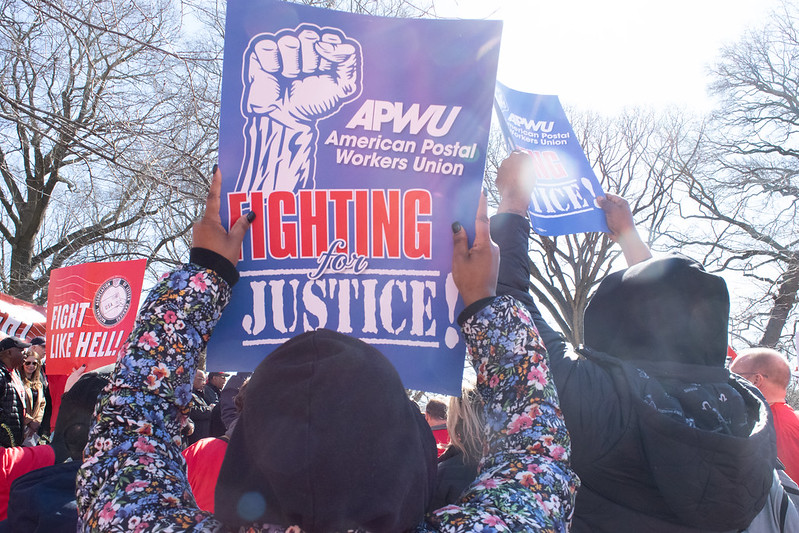
fighting for justice
The Latest from your Union—All in One Place


fighting for justice
Filters
Filter By
February 26, 2026
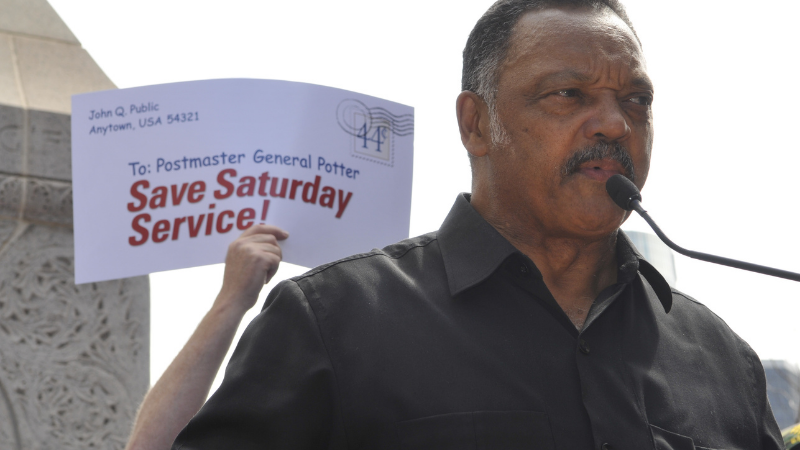
Rev. Jesse Jackson with President Burrus and Secretary-Treasurer Powell Rev. Jackson speaking at the APWU National Convention Rev. Jesse Jackson with APWU President Mark Dimondstein and AFGE President David Cox at the 20...
February 25, 2026

February 24, 2026

Former APWU President Clifford “Cliff” Guffey passed away on Saturday, February 21, 2026 at the age of 76. Guffey served as National President of the American Postal Workers, AFL-CIO from 2010-2013, overwhelm...
February 17, 2026

APWU President Jonathan Smith sits down with Federal News Network reporter Jory Heckman to talk about his vision for the future of the Postal Service, and why it is important to fight off privatizers. Click here to read...
February 13, 2026

In accordance with the 2024-2027 Collective Bargaining Agreement, career employees represented by the APWU, the third cost-of-living adjustment has been announced. Effective March 07, 2026...
February 10, 2026

On Tuesday, February 10 APWU President Jonathan Smith hosted his first livestream. Titled "Talk is Cheap, Safety Matters," Pres. Smith spoke about the need for vigilance and action from individuals, local unions, and the...
February 6, 2026

Industrial Relations Director Charlie Cash is pleased to announce improvements to the APWU Electronic Grievance System (EGS). The use of EGS continues to grow year after year. APWU locals can use the system to create gri...
February 1, 2026
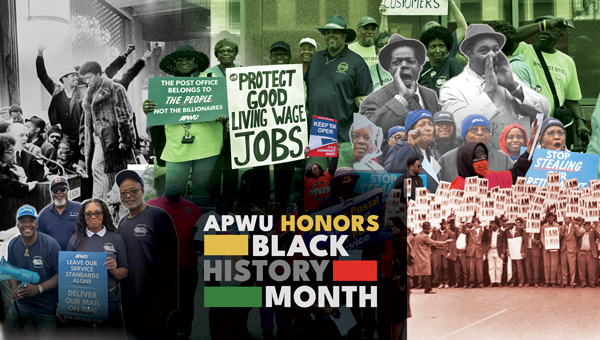
February marks Black History Month, a time to reflect on the significant contributions African Americans have made to our country and our company. Dr. Martin Luther King Jr.'s words continue to resonate with us: "No work...
January 28, 2026

Join APWU President Jonathan Smith for his first livestream event at 7 p.m. ET/4 p.m. PT on Tuesday, Feb. 10. The hour-long livestream, "Talk Is Cheap: Safety Matters" will address the safety challenges postal workers fa...
January 27, 2026
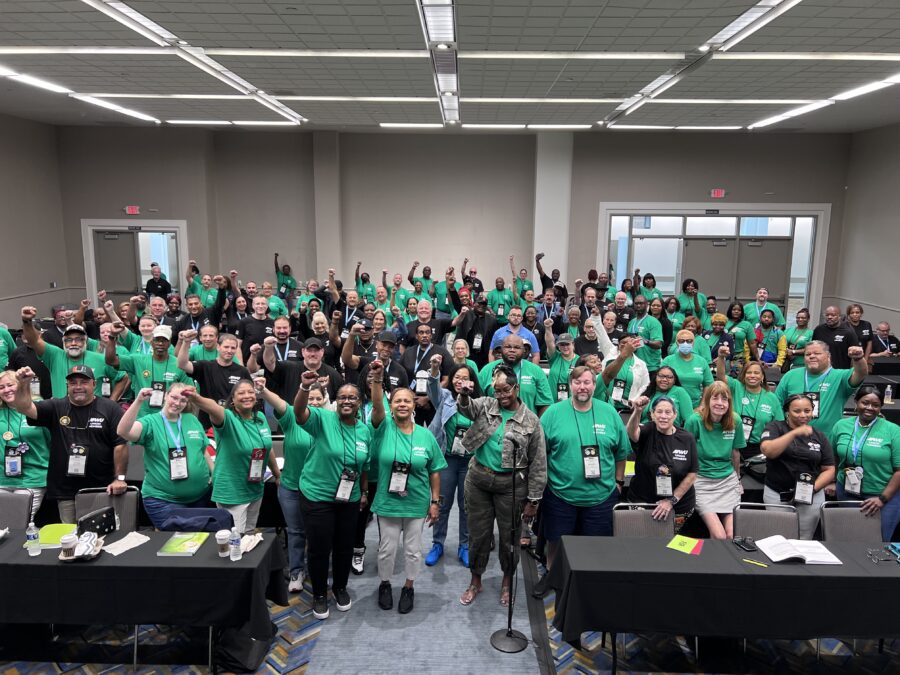
The American Postal Workers Union’s Electronic Grievance System will be offline intermittently for scheduled maintenance and upgrades beginning Friday evening. The EGS will undergo a software release starting at 7...
January 20, 2026
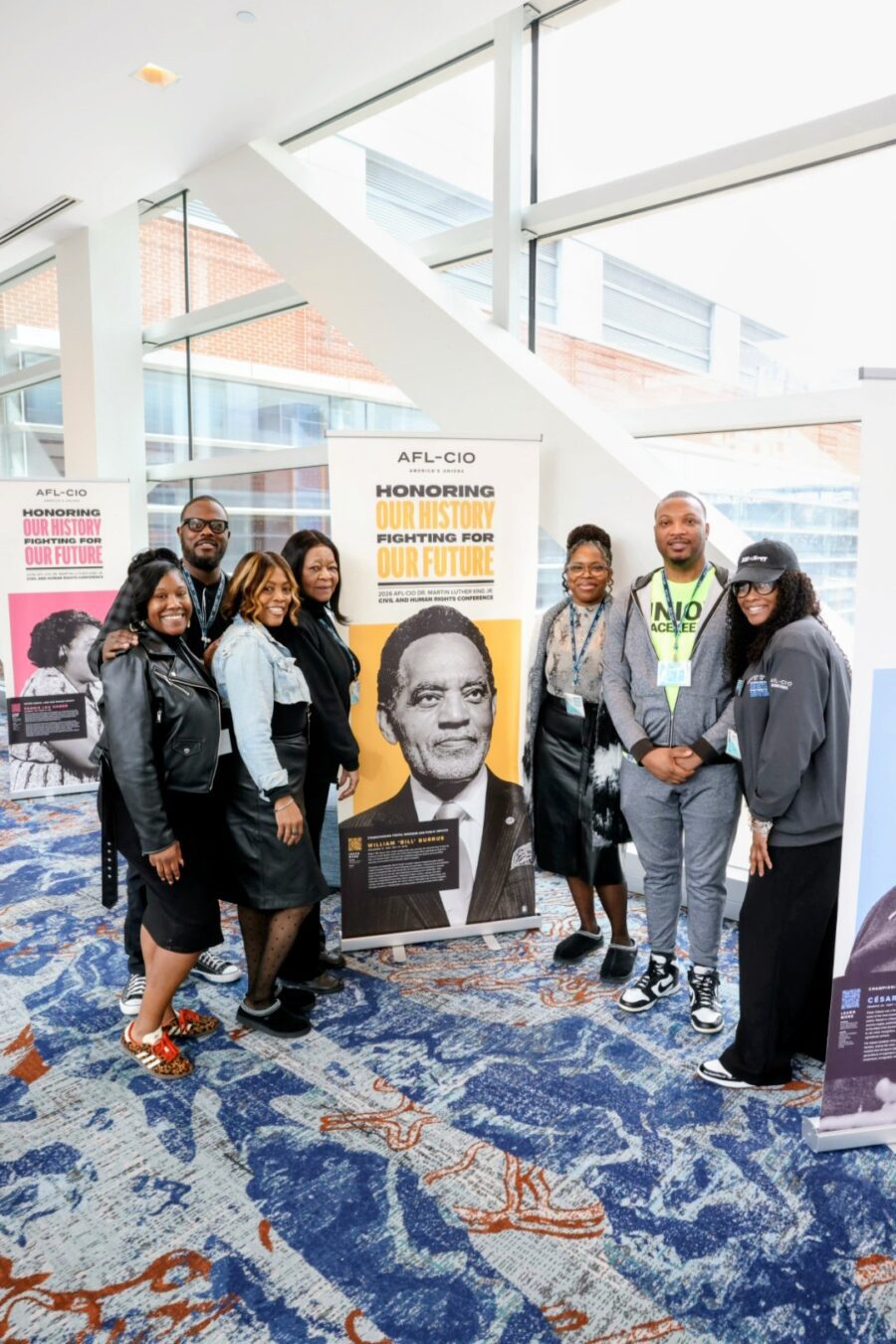
APWU attended the 2026 AFL-CIO Martin Luther King Jr. Civil and Human Rights Conference, which took place January 15-18 in Baltimore, MD. APWU President Jonathan Smith, Executive Vice-President Debby Szeredy, Secretary-T...
January 19, 2026
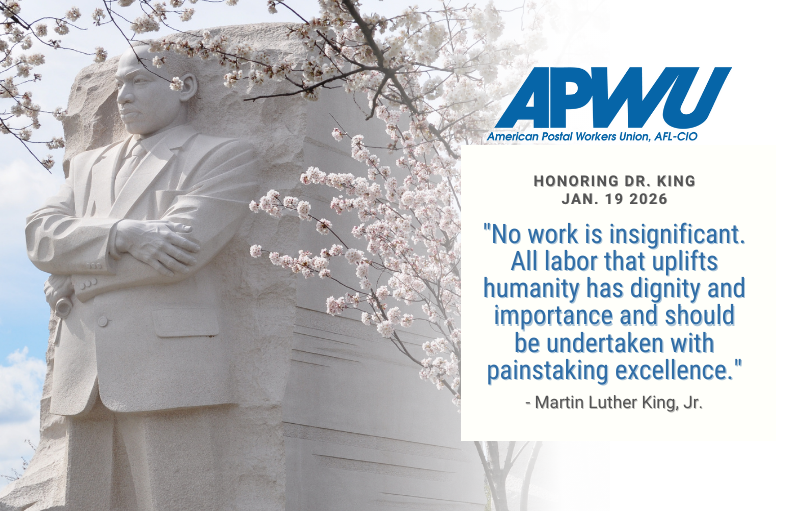
January 16, 2026

Research & Education Director Joyce B. Robinson shares guidelines on how to properly write a resolution for submission to official meetings such as the APWU National Convention.
January 16, 2026
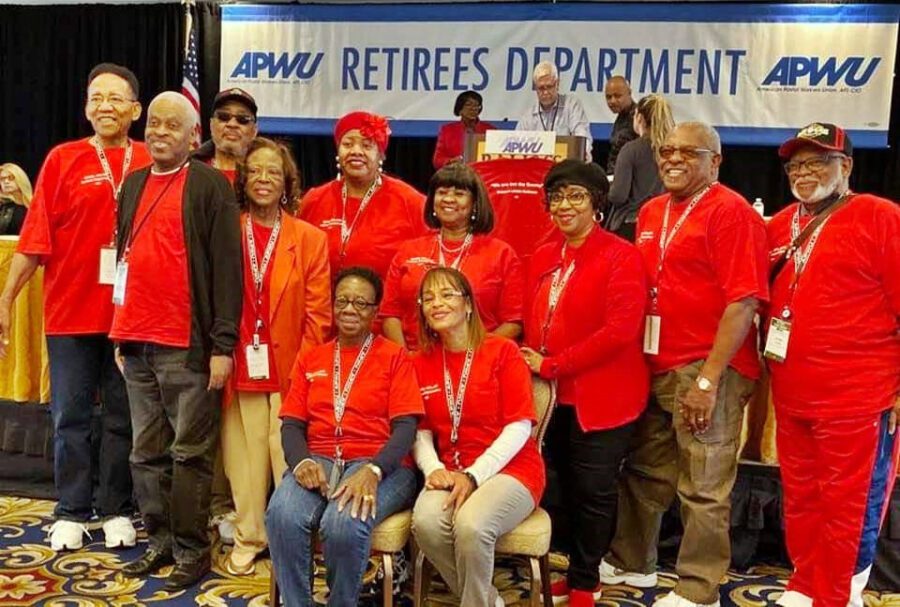
Retirees Director Nancy Olumekor explains how postal retirees can rejoin the APWU as a retiree member, and provides advice for current and future retirees.
January 16, 2026

As we approach Tax Season, The A Grand Alliance provides an update on Direct File, the Free Tax Filing System pilot program.
January 16, 2026
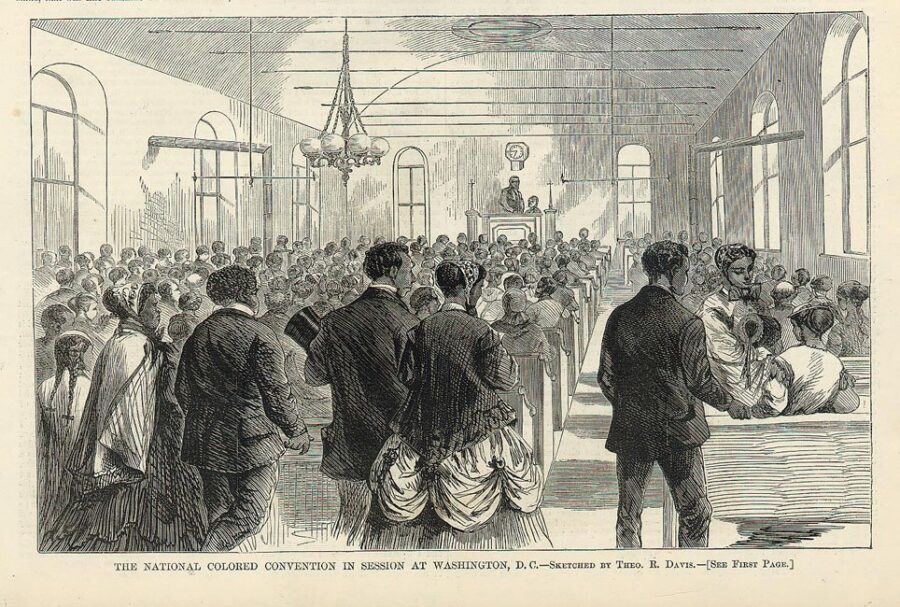
This month in Labor History, we take a look back at Colored National Labor Union (CNLU), the first national union established in 1869 to address black workers’ needs, and the Akron Rubber Workers Strike od 1936 that intr...
January 16, 2026
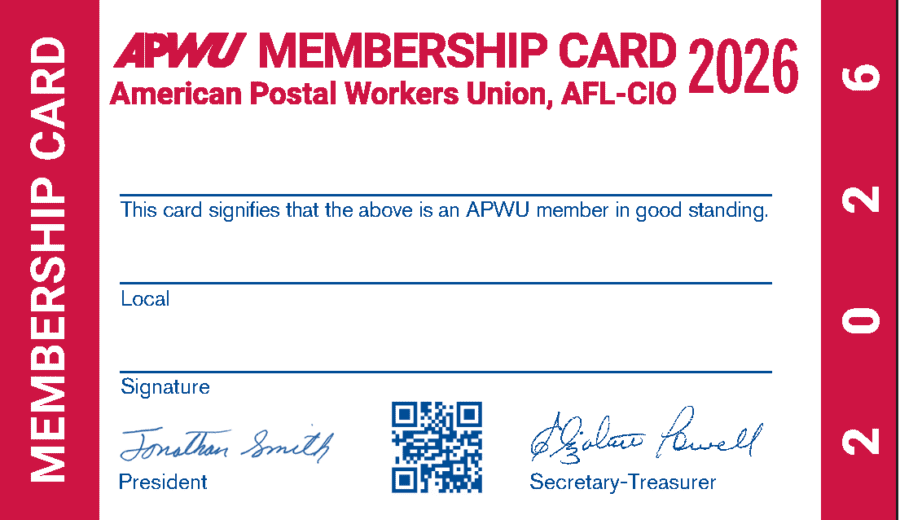
Your membership card represents your connection to a collective force dedicated to protecting postal workers’ rights, benefits, and workplace safety.
January 15, 2026
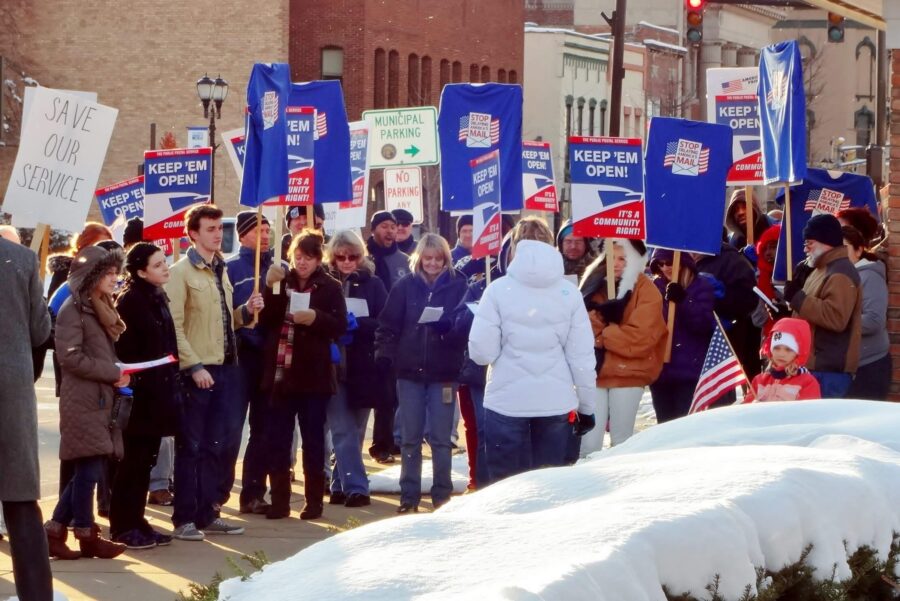
Support Services Director Kimbery A. Maurer provides a brief history of the Support Services Division and explains the importance of private-sector organizing.
January 15, 2026

“Serving the 40,000-plus members of the Southern Region to improve wages, benefits, safety, and working conditions is a responsibility that I embrace wholeheartedly.“ Newly elected APWU Southern Regional Coordinator Tony...
January 15, 2026

Clerk Craft Director Lamont Brooks discusses three Step-4 disputes regarding Postal Support Employees that were recently resolved: Pretextual Separation Issue, Designation of Hire and Separation/Termination Notifications...
January 15, 2026

It is the policy of APWU that no union representative is authorized by the national union to represent individual bargaining unit members (or other postal workers) in Equal Employment Opportunity (EEO), Merit Systems Pro...
January 15, 2026

Maintenance Craft Director Idowu Balogun provides the latest updates regarding the Per Diem MOU, and the initiation of two new national disputes challenging Field Maintenance Operations and the MS-47 TL-5 handbook.
January 15, 2026
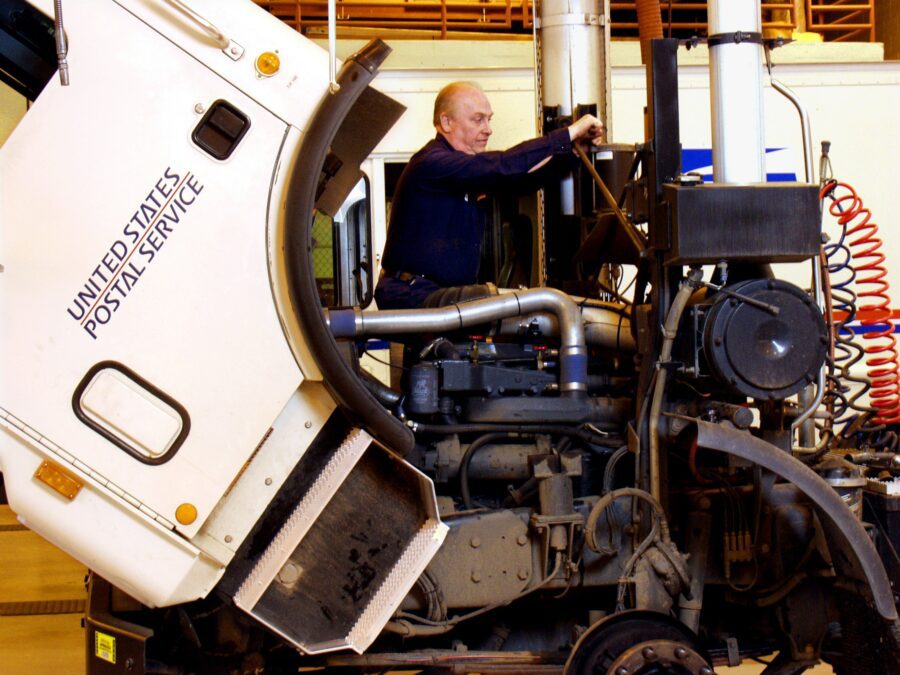
MVS Director Michael Foster explains the Step-4 agreement concerning the Postal Vehicle Service (PVS)’s use of scanners.
January 15, 2026
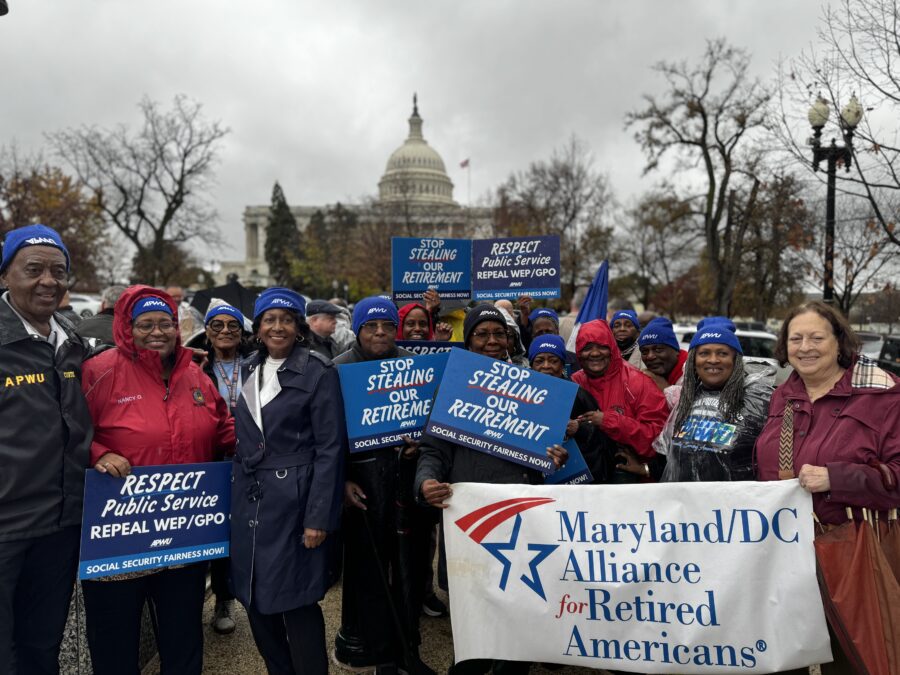
"The fights we take on affect every postal worker and every community we serve.” APWU Legislative and Political Director Judy Beard reflects on APWU’s victories in 2025 and the battles we still face in the new year.
January 15, 2026

"As we head into another year of opportunity and growth, remember that organizing isn’t a seasonal thing. It’s the heartbeat of our union." Organization Director Anna Smith outlines organizing goals to strengthen trainin...
January 15, 2026

"As we move forward, we must continue to prioritize member education and empowerment." Human Relations Director Daleo Freeman shares goals and priorities for the Human Relations Department in 2026.
January 15, 2026

(This article appeared in the January/February 2026 issue of The American Postal Worker magazine) I would like to welcome our new APWU Health Plan members who enrolled this Open Season. And if you were already a member,...
January 15, 2026
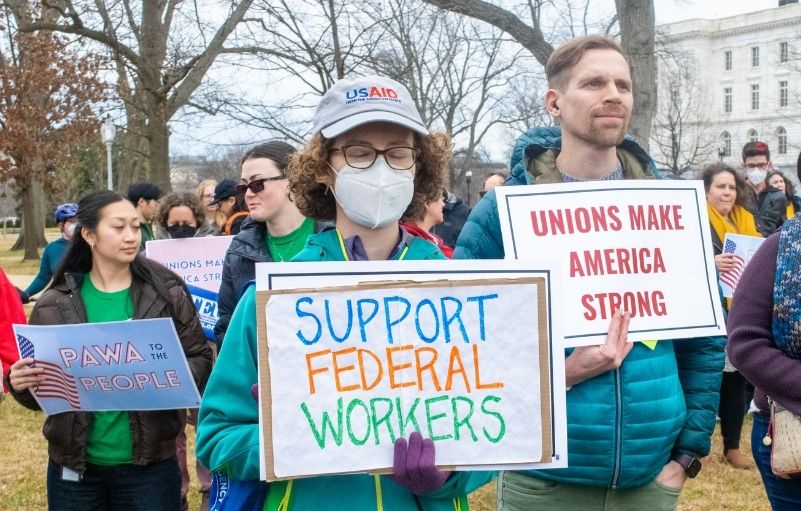
January 13, 2026

"Safety cannot be an afterthought. Safety needs to be at the forefront of all our minds when we work in a dangerous, industrialized environment." Industrial Relations Director Charlie Cash stresses the importance of mana...
January 12, 2026
